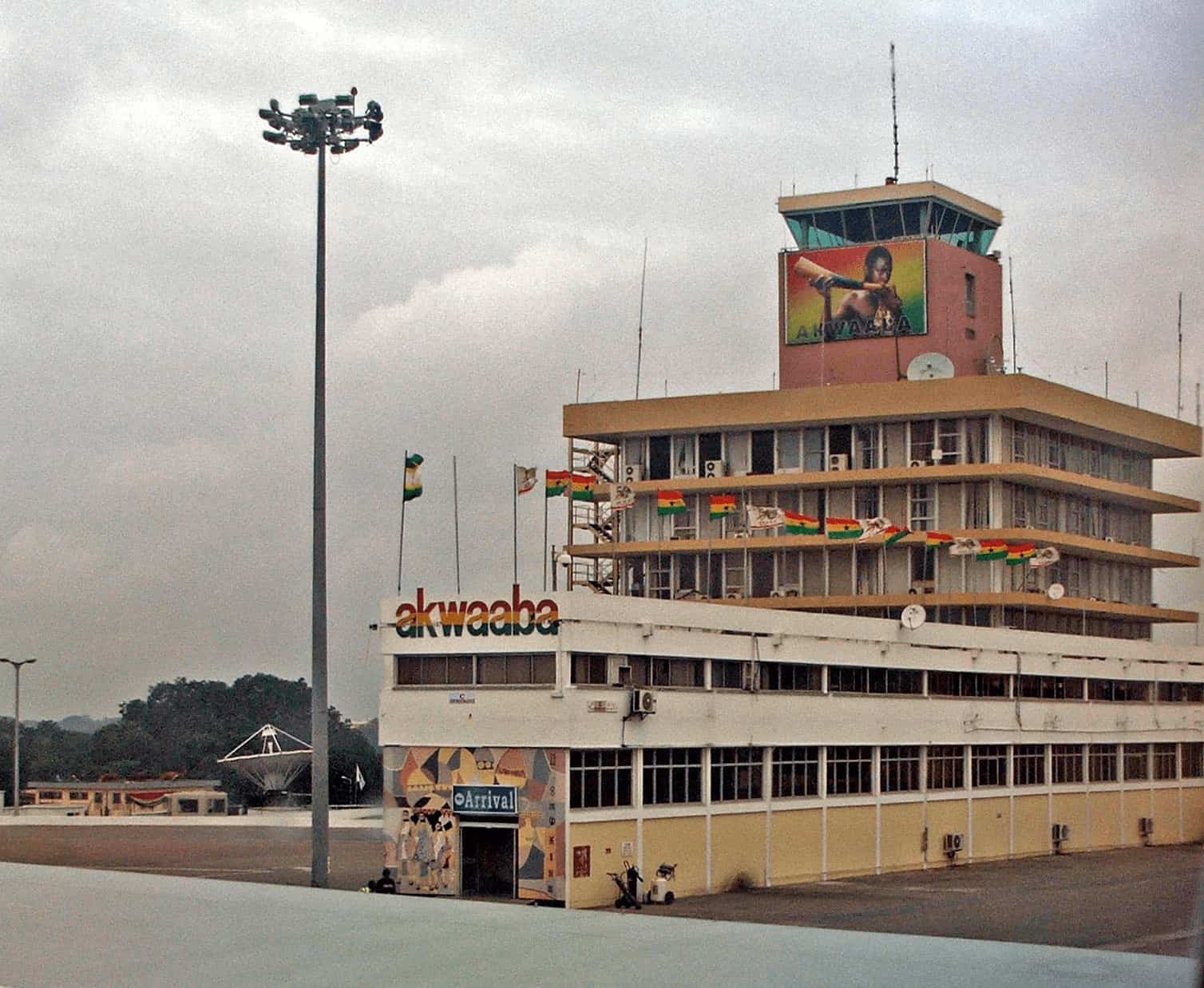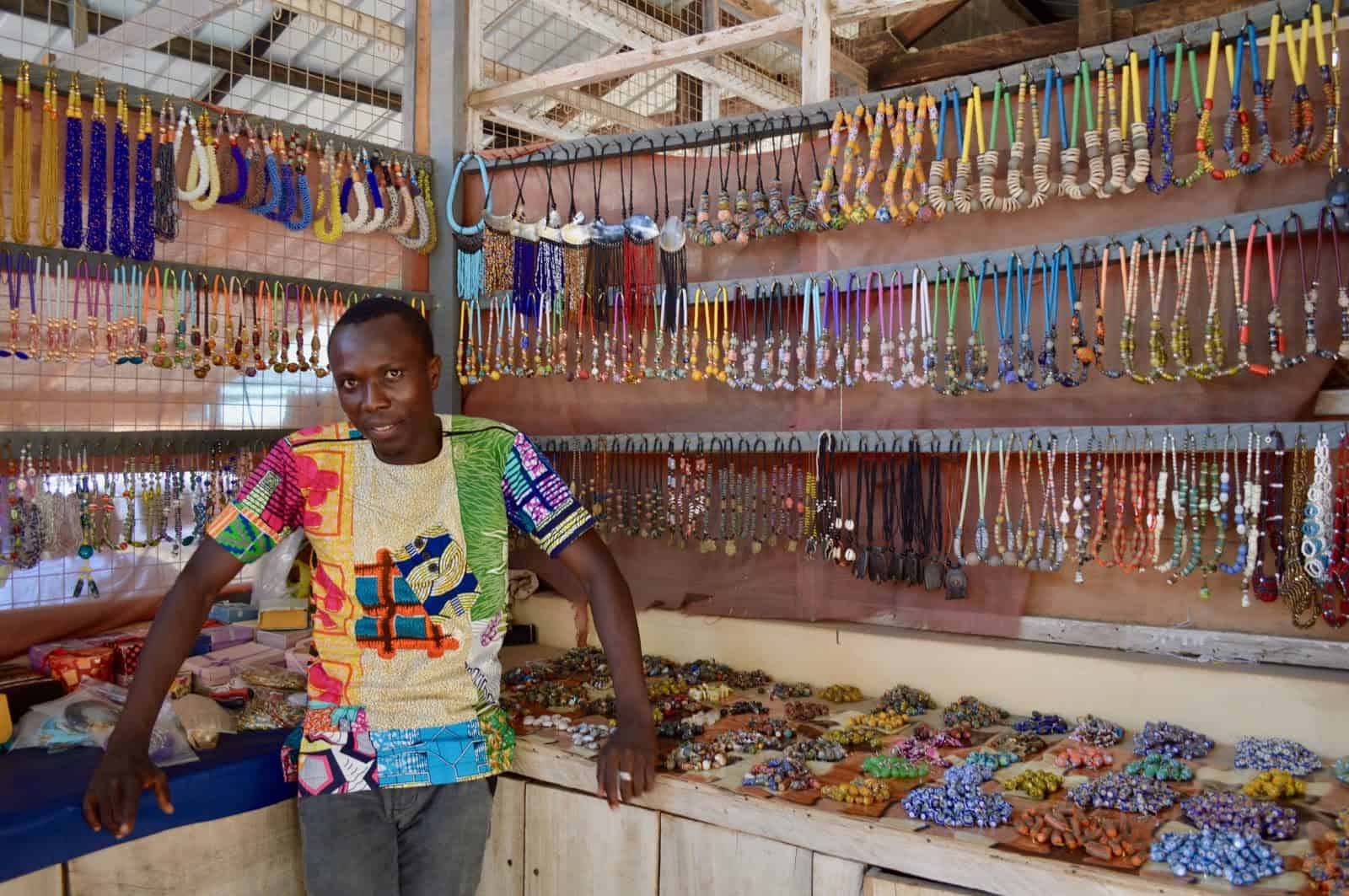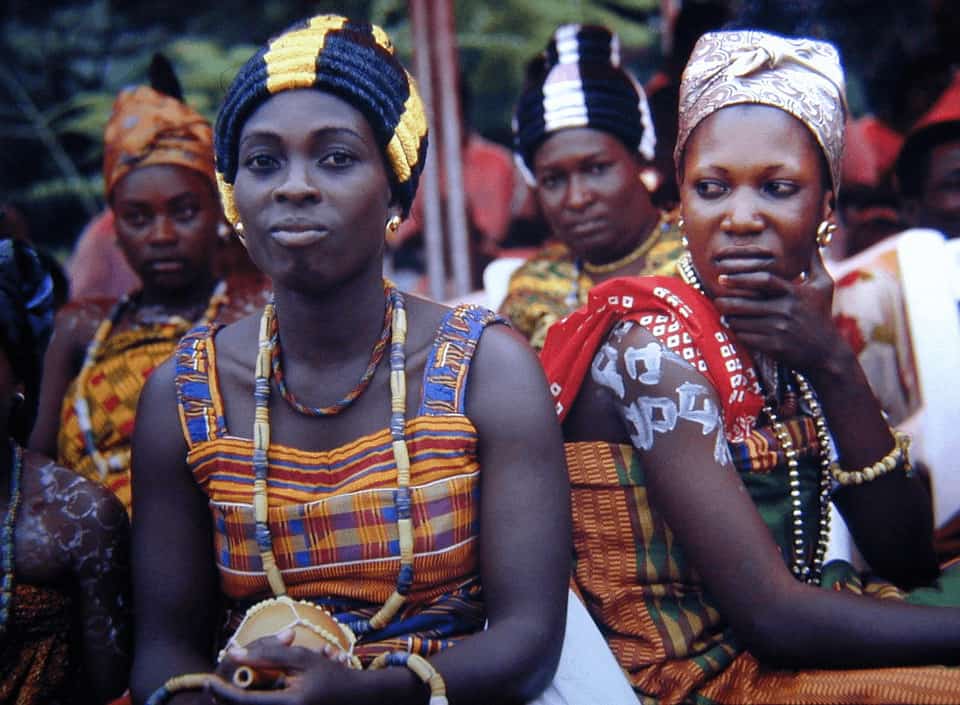With a rich history, beautiful landscape, and friendly people, Ghana is one of the most welcoming countries in sub-Saharan Africa. One of the buildings at the Kotoka International Airport in Ghana’s capital city, Accra, even has the word “Akwaaba,” meaning “Welcome!” spelled in giant letters across its side, reflecting the well-known hospitality of the Ghanaian people.
Foreign Service Officers lucky enough to work at the U.S. Embassy in Accra are quickly surrounded by the Ghanaian character, and many, while recounting their oral histories to ADST, have shared their fond impressions of the country’s residents. This “Moment in U.S. Diplomatic History” provides a collection of such impressions—stories and comments from diplomats and ambassadors throughout the years.
To read more about Ghana and the Ghanaian people, access the full Country Reader HERE.
Drafted by Ashley Young
Excerpts:
“Ghanaian people are terribly attractive and warm and outgoing and direct.”
Gordon Winkler, Public Affairs Officer, USIS: I was [in Ghana] for two and a half years. That was the most enjoyable post we had, because of the people…. Ghanaian people are terribly attractive and warm and outgoing and direct…. The Ghanaians are very open people.
****
“I don’t think I met a people that were nicer and gentler than the Ghanaians were.”
John C. Holzman, Deputy Chief of Mission: All the time I was in the Foreign Service, I don’t think I met a people that were nicer and gentler than the Ghanaians were—and not just to us but to their fellow Ghanaians. They truly like Americans, too. I think for African-Americans there was a connection with Ghana, like Irish people going back to Ireland. They were welcomed, were seen as part of a broader people. Those kinds of ties in the end, I think, were extremely important to the improving relations. There was no Ghanaian opposition to this; the Ghanaians were happy to have improved relations. On the American side, I think our African-American community was happy to do it, too.
****
“I had never lived before in such a fiercely egalitarian society; they really hated success, and that was interesting.”
Nicolas Robertson, Public Affairs Officers, USIS: Q: While you were [in Ghana], just do a compare and contrast of Nigeria; how did that play out for you?
ROBERTSON: Ghana’s an infinitely nicer place. They are nicer to foreigners…. During my time in Ghana I would have a lot of Nigerian FSNs (Foreign Service Nationals) come over on holiday or just to visit. On one of these visits, when we were driving down the road to Cape Coast, there was a car parked by the side of the road. I said, look, that’s been there 12 hours and it’s still got tires. This is a much more sensible country. The Nigerian laughed and said that I confused sensible with slow thinking. He said they will dismantle the car, but it will take them longer. And there was something to that. It’s a sane society; you know, you don’t do things that would embarrass people in public, but that’s not necessarily the same as integrity. I had never lived before in such a fiercely egalitarian society; they really hated success, and that was interesting.
Q: Was this a little bit like the Japanese say, it’s the nail that sticks up that gets hammered down?
ROBERTSON: Yes, yes. I always joked that Nigerians always lie about how big they are. Somebody selling cigarettes and kola nuts out on the street will hand you a business card, listing himself as the director of an export-import company, and tell you that he’s working with a cousin, bringing a shipload of Thai rice; come see him next week and he’ll have some deals for you. Whereas in Ghana, you can never find a businessman who’s ever had a successful year! They always lie about how bad they’re doing…. A true story: A bunch of Ghanaian taxi drivers in Atlanta had a group where they bought a bunch of lottery tickets every Thursday or Friday when they went on sale. Once they won the lottery, but then there was a fight about who was actually a member of the group. Some guys weren’t on duty the night the tickets were bought for one reason or another, but otherwise were regular members of the group. They never sat down to figure out any structure for the group because, after all, it was a lottery and their chances of winning were low. So some of these taxi drivers who were not scheduled to get any money took the others to court. Nobody could get any money unless they were included – “I would have been there except I was sick that day,” that kind of nonsense. The ethos was to not allow anybody to have the money if they could not get full shares, and it was not amenable to negotiation. Rather than collect the $25 million and share it out, they would rather argue about it for five years. It was strange.
****
“[T]he Ghanaian people… are people of God. They are clearly fueled to enjoy life.”
Gordon W. Evans, Program Officer, USAID: [T]he Ghanaian people, perhaps more than any other people I’ve ever lived with, are people of God. They are clearly fueled to enjoy life and our residence there was so enjoyable despite all of the early hardships.
****
“They seem to have a degree of self-confidence and self-esteem that permits them to accept outsiders… on a friendly and straightforward basis.”
Frederick E. Gilbert, Assistant Program Officer, USAID: And again, sometimes you don’t appreciate something really precious until later when you acquire more perspective. And it was only later that I fully appreciated the Ghanaians. One of their more interesting characteristics is their relative freedom from complexes about themselves in relation to the rest of the world—in particular, the white world. There are always exceptions to every generalization, but for the most part they seem to have a degree of self-confidence and self-esteem that permits them to accept outsiders, including white outsiders, on a friendly and straightforward basis. By straightforward I mean with very little, if any, suspicion, disdain, or deference. I am, of course, talking about the educated people. From the uneducated—especially servants—one might get the same kind of wheedling, favor, and patronage seeking behavior that can be very tiresome in other parts of Africa. But with those on a comparable socioeconomic level with us, it was possible to form friendships that were not about anything except our enjoyment of one another’s company. I never experienced that on a broad scale again in Africa except, very unexpectedly, in Sudan.
Q: How did you find working with them as regards to getting things done?
GILBERT: Well… they were awfully damn articulate, and excellent debaters. Others and myself observed that something – whether education or culture or, more likely, a combination of the two – made them extremely good “in committee” as the Brits say. Another thing I find interesting to look back on is the climate of intellectual freedom that prevailed even though coming out of a dictatorship and despite being under a military government during three of my four plus years there. I found that they were extremely frank. I also felt that most of their disagreements with us and among themselves were of a pretty high quality…. The main thing is that in Ghana in those days I met some of the most outstanding and attractive personalities I have ever known in my life. You and I both know many of those people. Mary Chinery-Hesse, Sam Ofosu-Armah, Fred Sai and Alex Kwapong, to name a few. And then there were many others who were just extraordinarily good, hard-working people.
****
“Ghanaians… are among the most likeable, pleasant, nice people in all of Africa.”
Robert P. Smith, Desk Officer: By the time I got there, of course, they had been through a number of coups and General Acheampong was the Head of State and Chairman of the Supreme Military Council, a rather unprepossessing military type who was struggling along. But I had so admired the Ghanaian people, and still do, because they had retained their wit, and charm, and humor despite all the privations piled upon them…. Ghanaians… are among the most likeable, pleasant, nice people in all of Africa. They are simply an enormously likeable, warm, generous, outgoing people. I can’t find enough adjectives to use with respect to the Ghanaians.



